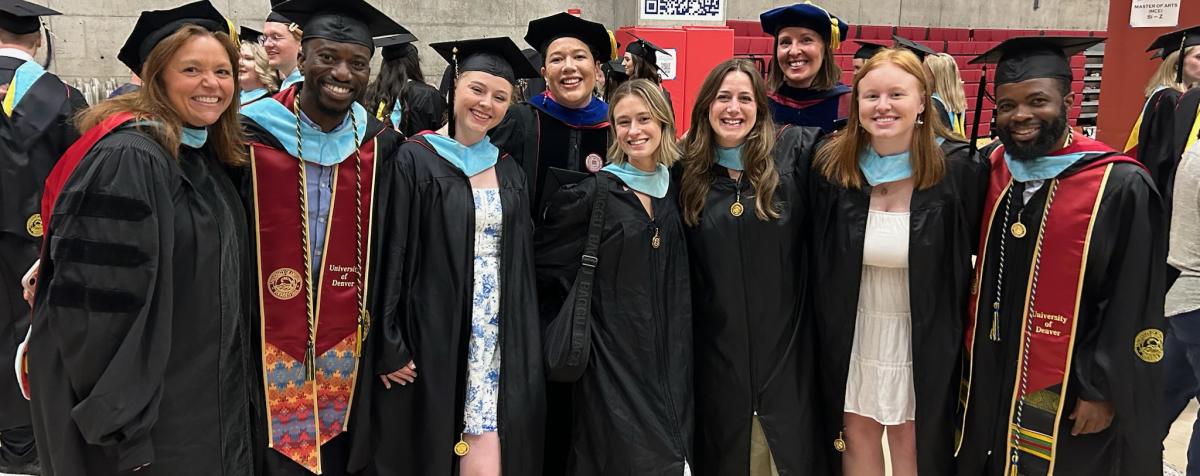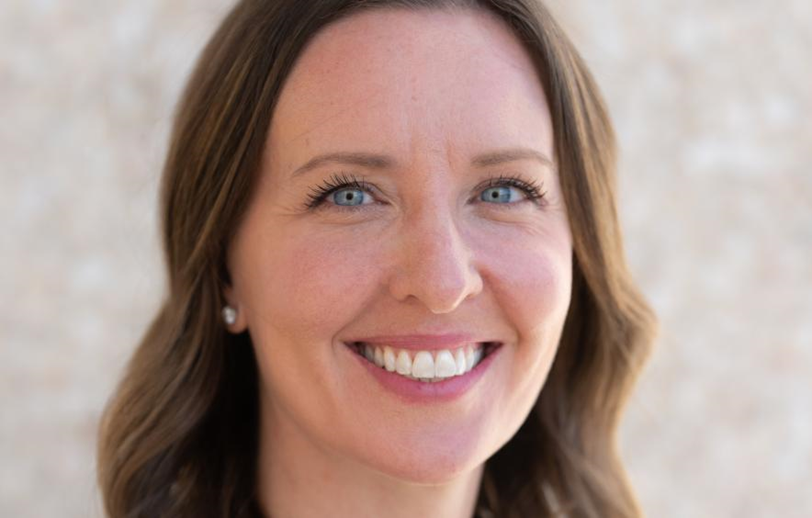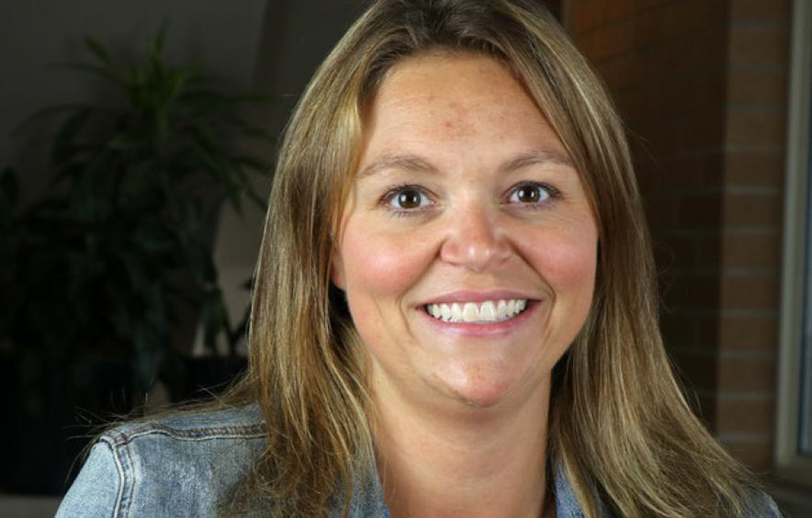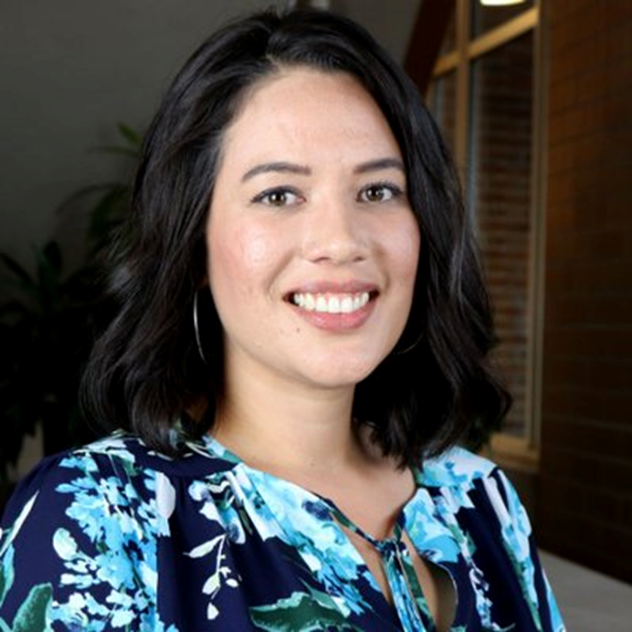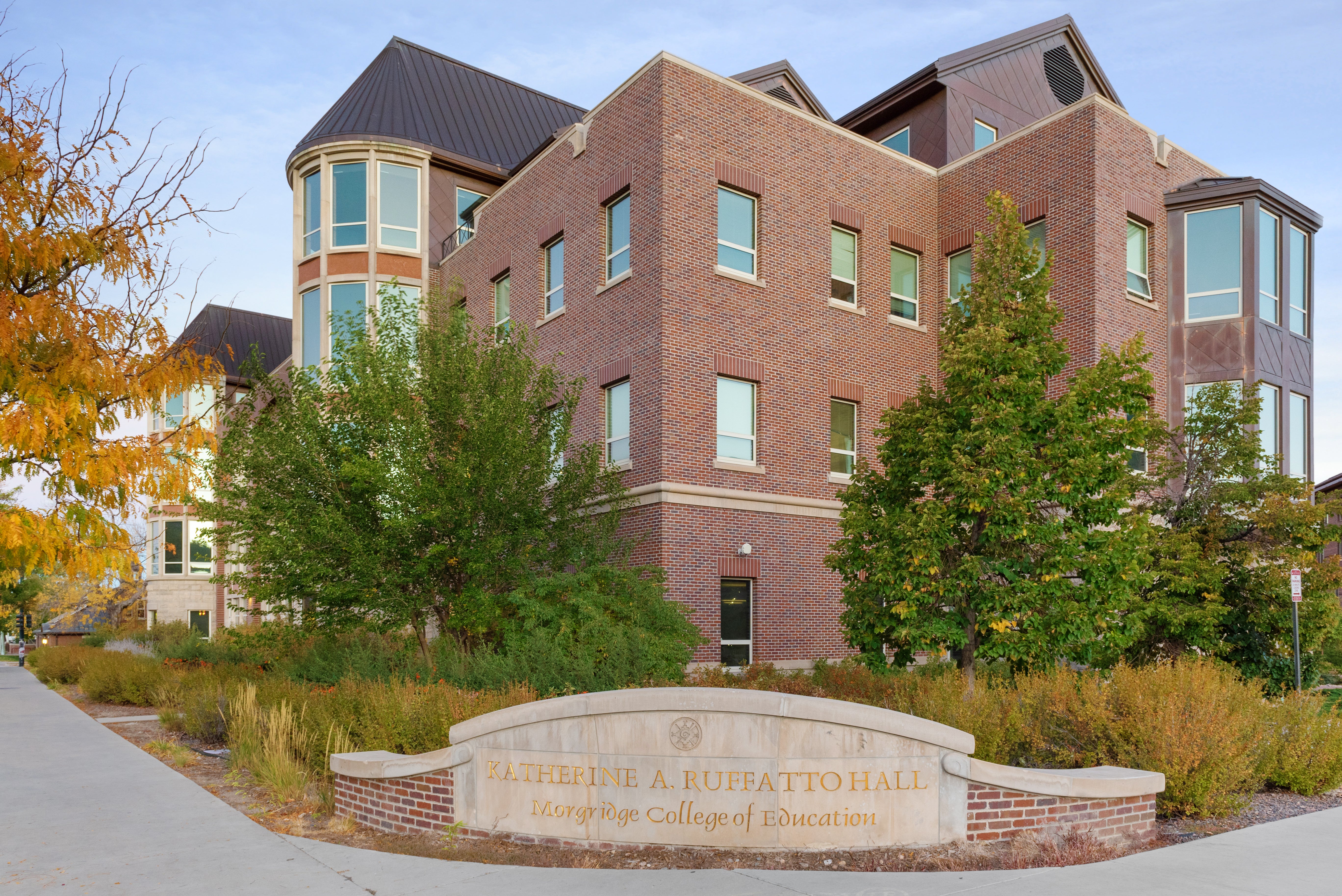The Master of Arts in Higher Education equips you with a solid foundation for navigating and thriving at a college, university, policy organization or related entity in the postsecondary realm. Our emphasis on higher education policy sets us apart from other master's level programs, showcasing our dedication to preparing well-rounded entry-level professionals.
Within our curriculum, you'll delve into three key areas: college student affairs; diversity and higher learning; and public policy and organizational change. Moreover, our unwavering commitment to diversity, equity, inclusion and justice permeates every aspect of our curriculum. You'll also gain practical field experiences, empowering you to apply classroom knowledge to real-world challenges. Finally, the capstone e-portfolio allows you to reflect critically on your personal and professional growth throughout the program, both inside and outside the classroom.
Start Dates: Fall
Curriculum: 50 Credit Hours
Program Length: 22 Months
93% Percentage of graduates who secure employment in administrative, student affairs, policy, organization, and academic roles
89% Job placement rate within six months of graduation
100% Percentage of admitted students who receive some form of tuition assistance from the Morgridge College of Education
Master of Arts in Higher Education
How our curriculum prepares you for your career in Higher Ed
Gain hands-on experience
Integrate your classroom learning with professional competencies through the required internship experience and capstone (e-portfolio) project.
Learn how to empower students in their own higher education journey
Learning about higher education will assist you, as you prepare for a career in the field, in understanding how to effectively support student success. The MA in Higher Education program also helps its own students make their college experiences better.

Learn essential professional competencies
Engage in applicable coursework covering financing higher education, assessment, legal issues, public policy, student affairs administration and leadership supervision. These courses directly target the fundamental professional competencies required for entry-level professionals in higher education.
Be prepared for the pressing issues affecting higher education
Current concerns in U.S. and global postsecondary education (such as student loan debt and DEI initiatives) demand professionals learn how to deal with the pressing issues of the field.
Request for Information
Application Information
Research Requirement
- RMS 4900 - Education Research and Measurement
HED Required Courses
- HED 4213 - Leadership and Supervision or HED 4235 - Organizational Change
- HED 4218 - Organization and Governance in Higher Education
- HED 4219 - Introduction to Higher Education
- HED 4246 - Issues of Access and Opportunity
- HED 4247 - Retention, Persistence and Student Success in Postsecondary Settings
- HED 4270 - Internship in Student Affairs
- or HED 4295 - Internship in College and University Administration
- or HED 4296 - Internship in Public Policy
- or HED 4297 - Internship in College Teaching
- HED 4230 - Reflective ePortfolio
HED Electives: 24 Credit Hours
Mix and match across HED course offerings or choose one of these optional emphasis areas: College Student Affairs, Diversity and Higher Learning, Public Policy and Organizational Change
College Student Affairs Emphasis
- HED 4201 - Assessment in Higher EducationHED 4217 - Student Affairs Administration
- HED 4229 - Student Support in College
- HED 4260 - Students and College Environments
- HED 4261 - College Student Development Theory
- HED 4294 - Seminar in Higher Education (as appropriate)
Diversity and Higher Learning Emphasis
- HED 4281 - Inclusive Excellence Programming and Development
- HED 4284 - Inclusive Excellence in Organizations
- HED 4287 - Critical Race Theory and Education
- HED 4288 - Gender and Sexuality in Higher Education
- HED 4289 - Race and Racism in Higher Education
- HED 4294 - Seminar in Higher Education (as appropriate)
Public Policy and Organizational Change Emphasis
- HED 4212 - Introduction to Public Policy and Higher Education
- HED 4221 - Financing Higher Education
- HED 4222 - Legal Issues in Higher Education
- HED 4242 - Educational Policy Analysis
- HED 4294 - Seminar in Higher Education (as appropriate)
Career Paths for Master of Arts in Higher Education graduates
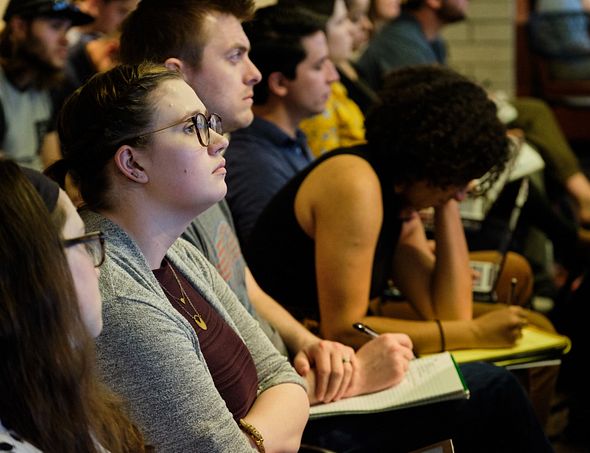
Student affairs administration

Residence life

Student activities and leadership

Enrollment management

Fundraising and advancement

Postsecondary education policy organizations (e.g., Colorado Department of Higher Education)

Get Started on Your MA in Higher Education
Build your higher education career with a Master of Arts at the University of Denver’s Morgridge College of Education
